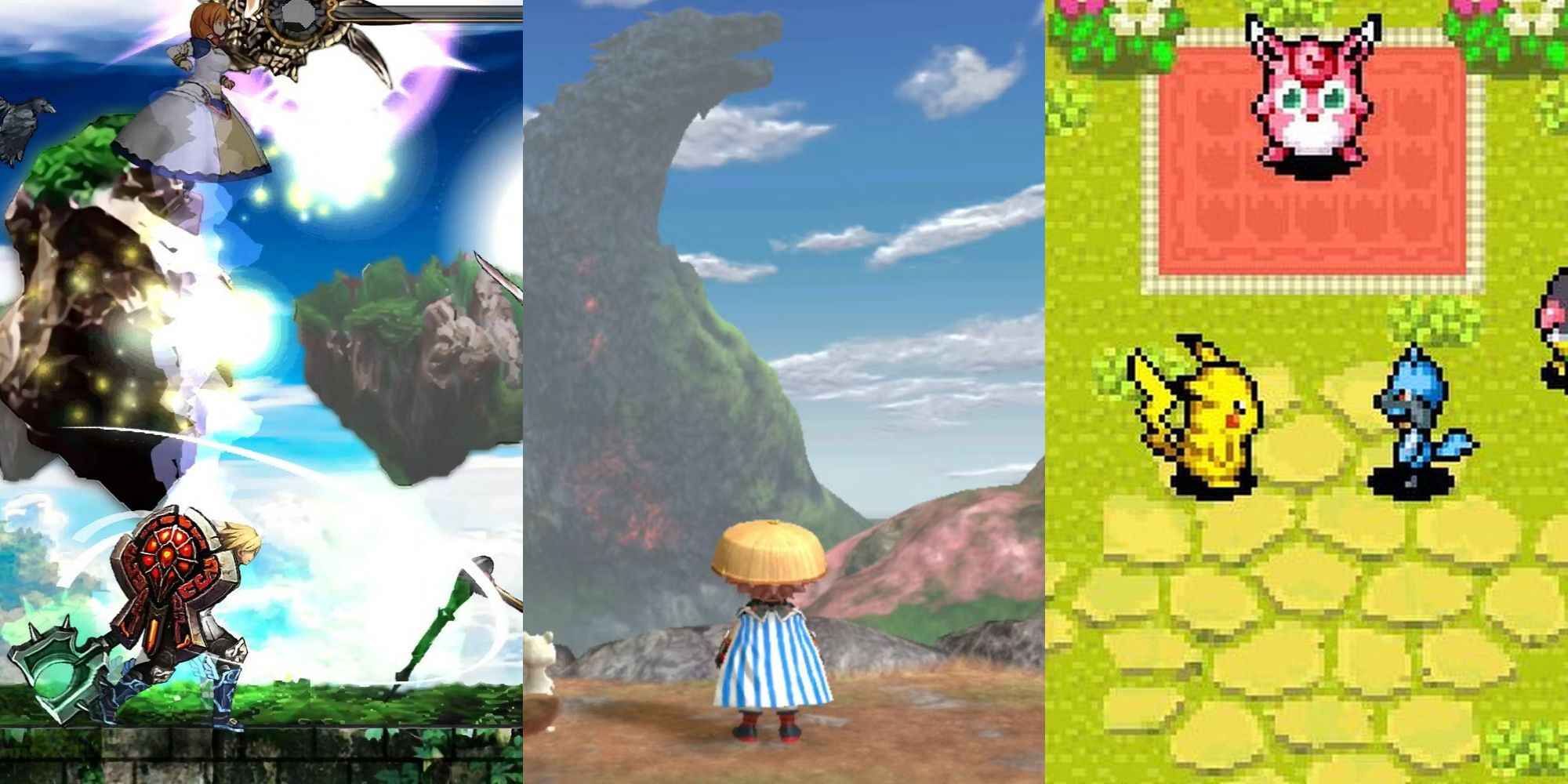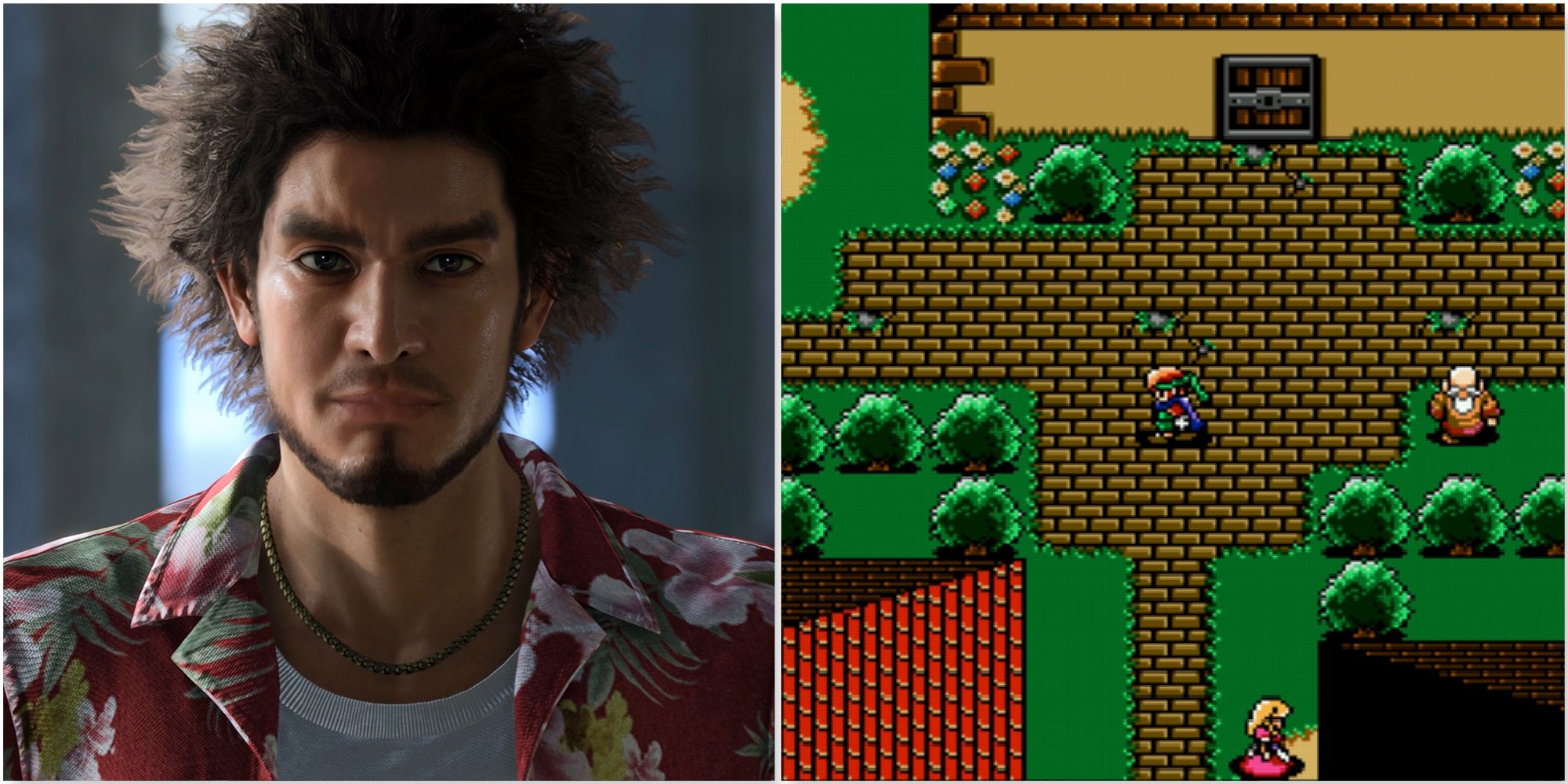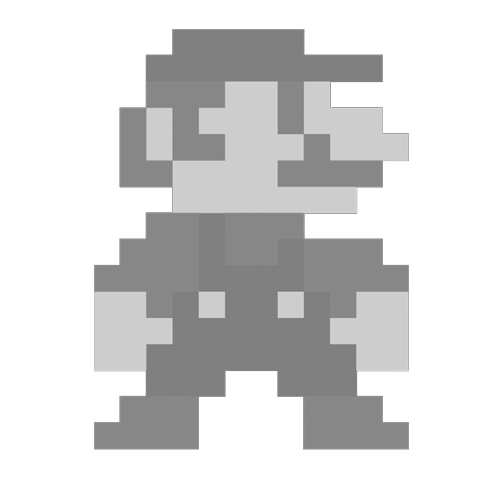Games
Great JRPG Franchises That Had Rough Starts

Key Takeaways
Table of Contents
- Persona series found its identity after initial struggles, combining life sim with classic JRPG elements for a winning combo.
- Fire Emblem overcame initial problems to become a beloved tactical franchise, rewarding players with strategic gameplay.
- Drakengard’s initial lack of identity and engaging gameplay loop led to its overshadowing by mainstream audiences.
JRPGs have a long and rich history in the gaming industry, making waves in this landscape before eventually blowing up in the West when the PS1 introduced numerous players to the sheer fun players can have by controlling a party and going on an epic adventure for the ages. Numerous franchises have been established that push this genre to its limits and have innovated on everything from battle systems to visual presentation.
Related
10 JRPG Protagonists With Tragic Stories
The JRPG genre is no stranger to protagonists with tragic, emotional backstories guaranteed to have players tear up.
Some of the most notable JRPG franchises have become a household name at this point, but their start in the industry was far from perfect. The first games in these series were either criticized extensively, suffered from problematic development cycles, failed to meet sales expectations, or faced a combination of these three problems. Thankfully, these issues didn’t stop the best JRPG franchises from establishing a foothold in the industry.
5 Persona
It Took A While For This Spinoff Series To Establish An Identity Of Its Own
The Persona series is easily one of the most popular modern JRPG franchises of all time. The combination of life sim elements and classic JRPG gameplay was a winning combination that hit a sweet spot from the third mainline game, with the latest games in the series making it a point to enhance the visual flair of their games to let players enjoy some of the most visually stimulating JRPGs of all time. It’s hard to believe that this series initially started as a Shin Megami Tensei spinoff, with the first game being far from an ideal start in the gaming industry.
Revelations: Persona had an interesting plot and fun characters, but it’s the gameplay that fell short of the mark. Battles could take ages to complete, to the point where a few random encounters were enough for players to tear their hair out at the slow pace of the combat. Without any modern innovations to help speed things up, Revelations: Persona is a huge pain to get through and easily one of the worst games in the series that players are better off avoiding.
4 Fire Emblem
The First Entry In This Beloved Tactical Series Had Its Fair Share Of Problems But Managed To Establish A Series
Fire Emblem: Shadow Dragon and the Blade of Light
Most fans of strategy RPGs are well aware of Fire Emblem and its iconic presence in the video game industry. It’s one of the most prolific JRPG franchises in Nintendo’s library that always delivers, letting players enjoy some stellar tactical gameplay that rewards good strategy and unit management. It’s hard to believe that a series that is known by many had a rough entry in the gaming industry, with Fire Emblem: Shadow Dragon and the Blade of Light sporting a ton of problems that didn’t impress many people.
The tough-as-nails gameplay was hard to understand, and it didn’t help that the game looked ugly, even for its time. This led to slow sales, and it was very much possible that the Fire Emblem series could’ve fizzled out with the very first entry itself. However, this game scratched an itch for many fans, with word-of-mouth ensuring that Fire Emblem: Shadow Dragon and the Blade of Light would accrue enough sales to greenlight a sequel. The rest is history.
3 Drakengard
Before The Advent Of The Nier Series, Drakengard Struggled To Find An Audience Or Identity
Before Yoko Taro became a household name with his amazing work on Nier: Automata, the developer was known for his work on the Drakengard series. A weird plot and multiple endings were present in this trilogy, but the lack of a stellar gameplay loop led to the Drakengard games being overlooked by mainstream gaming audiences. It struggled to form an identity of its own, with the first game relying on a musou gameplay loop before later games tried out smaller-scale combat instead.

Related
10 Best JRPGs With Roguelite Elements, Ranked
An uncommon pairing, these notable JRPGs each feature distinct roguelite or roguelike elements, creating fresh and unique gameplay experiences.
While the storytelling in Drakengard is easily one of its biggest strengths, it falls short in almost every other department. The graphics were far from impressive, the sound design was lackluster, and the gameplay felt derivative and brainless at times. It might have been an ambitious game, but it was clear that Yoko Taro needed an engaging gameplay loop to help his stories reach a wider audience, something that he finally achieved with Nier: Automata.
2 Xeno
Despite Being A Stellar JRPG, Deadlines And Lack Of Funds Turned Xenogears’ Latter Half Into A Glorified Slideshow
Most people consider Xenogears to be both a great JRPG and one of the biggest disappointments on the PS1. The story was rife with social and religious commentary while making the most of its sci-fi setting to immerse players in a riveting plot. Switching between regular and mecha combat helped the turn-based gameplay stand out in the eyes of many, so it was a shame that the game’s original vision didn’t match its budget or development time. After roping players in with the first disc, the majority of the second disc was a glorified slideshow that showed just how poorly managed the game’s development cycle was.
Thankfully, after the decent Xenosaga trilogy, Nintendo snapped up the rights to the Xeno series and let Tetsuya Takahashi achieve his vision and then some with the Xenoblade Chronicles games. The open worlds and riveting tales told in these titles make them some of the best modern JRPGs players can get their hands on, making it clear that this series will continue to grace Nintendo consoles for quite some time.
1 Dragon Quest
The First Game Is Important To JRPGs As A Whole But Isn’t Fun To Play At All
Dragon Quest
- Released
- May 27, 1986
- Developer(s)
- Chunsoft
Some people may consider it heresy to talk negatively about Dragon Quest in any way. This is one of the most legendary JRPG franchises of all time, with the first game playing its part in establishing numerous tropes for the genre, serving as a traditional adventure of the hero taking on mighty foes before eventually facing off against a great evil and saving the land. However, regardless of how iconic the first game is, to say that it’s a fun game to play would be an outright lie.
Even at the time of its release, Dragon Quest (known as Dragon Warrior on Western shores) was criticized by many for its simplistic gameplay, with many people just not used to this type of game in the West. This led to poor sales initially, but advertisements and giveaways by Nintendo Power ensured that the series would be popular enough to release later games worldwide. Regardless, the Japanese success of Dragon Quest ensured that it would enjoy an enduring legacy regardless of how well it did in the West.
4:47

More
Best JRPGs Developed Or Published By Sega, Ranked
While not associated with the genre all that much, Sega has developed or published a few of the best JRPGs of all time.
-

 What To Watch4 weeks ago
What To Watch4 weeks agoVenom 3 Ending, Post Credits Scenes Explained: Who Is Knull?
-
!['Venom: The Last Dance' ending, explained: What happened to [redacted]? 103 hero image.fill .size 1200x675.v1729702186](https://www.themearound.com/wp-content/uploads/2024/10/hero-image.fill_.size_1200x675.v1729702186-400x240.jpg)
!['Venom: The Last Dance' ending, explained: What happened to [redacted]? 104 hero image.fill .size 1200x675.v1729702186](https://www.themearound.com/wp-content/uploads/2024/10/hero-image.fill_.size_1200x675.v1729702186-80x80.jpg) Entertainment4 weeks ago
Entertainment4 weeks ago‘Venom: The Last Dance’ ending, explained: What happened to [redacted]?
-

 What To Watch3 weeks ago
What To Watch3 weeks agoA Haunting Meta Doc About Ukraine’s Invasion
-

 Movies4 weeks ago
Movies4 weeks agoBilly Crystal Struggles to Clarify Apple TV+’s Haunting New Horror Series “Before” | TV/Streaming
-

 Tech3 weeks ago
Tech3 weeks agoAutumn Internationals 2024 live stream: how to watch rugby union
-

 Entertainment4 weeks ago
Entertainment4 weeks agoM4 Mac mini vs. M2 Mac mini: What are the differences?
-

 What To Watch3 weeks ago
What To Watch3 weeks agoNvidia Replaces Intel on Dow Jones Industrial Average
-

 What To Watch3 weeks ago
What To Watch3 weeks agoHow Lone Justice Came Together to Create First ‘New’ Album in 38 Years











